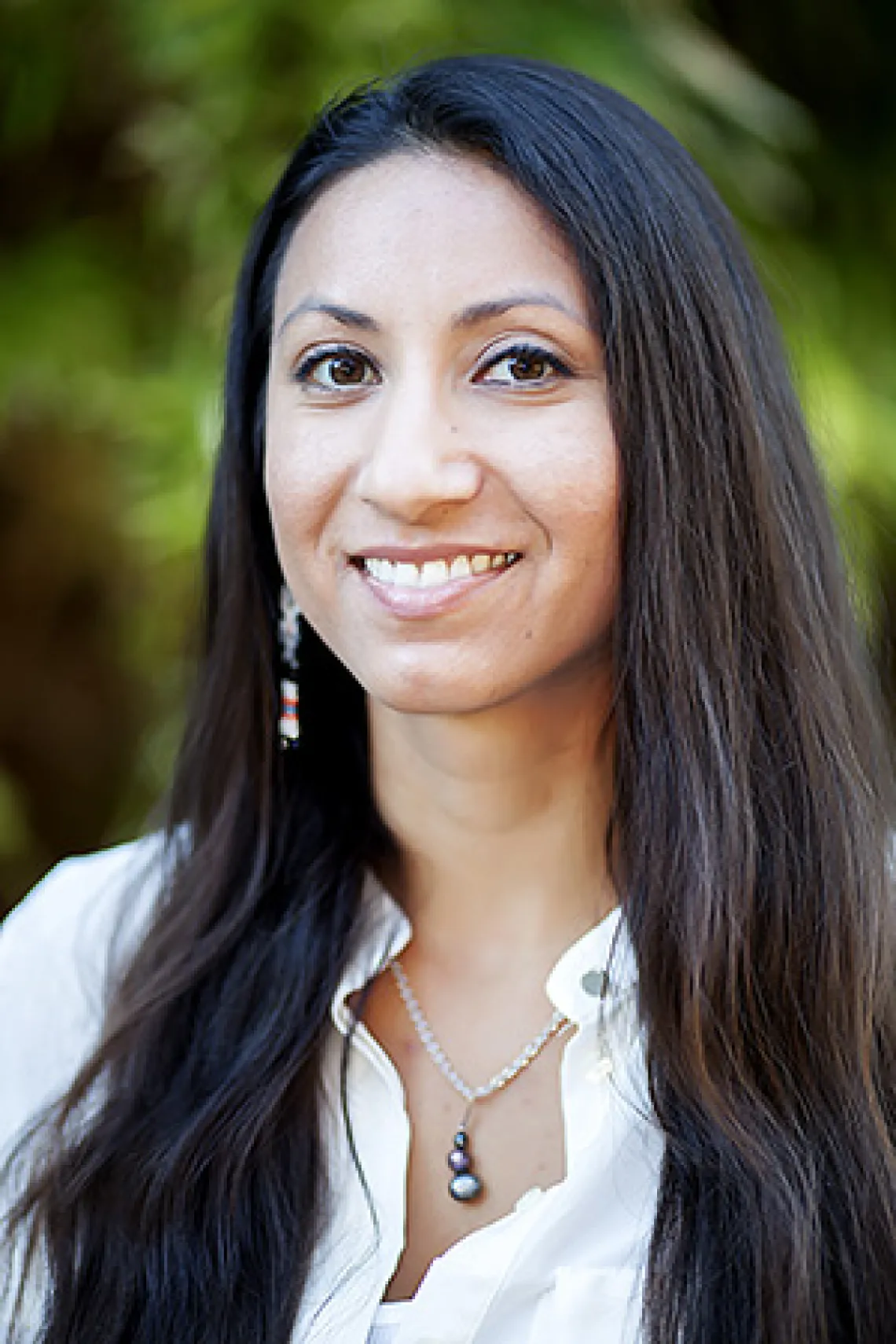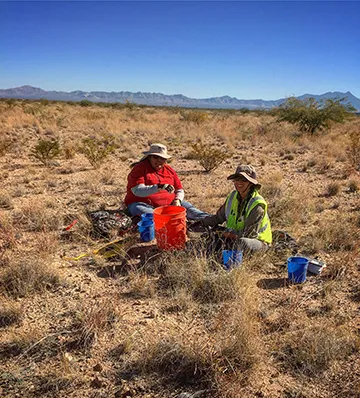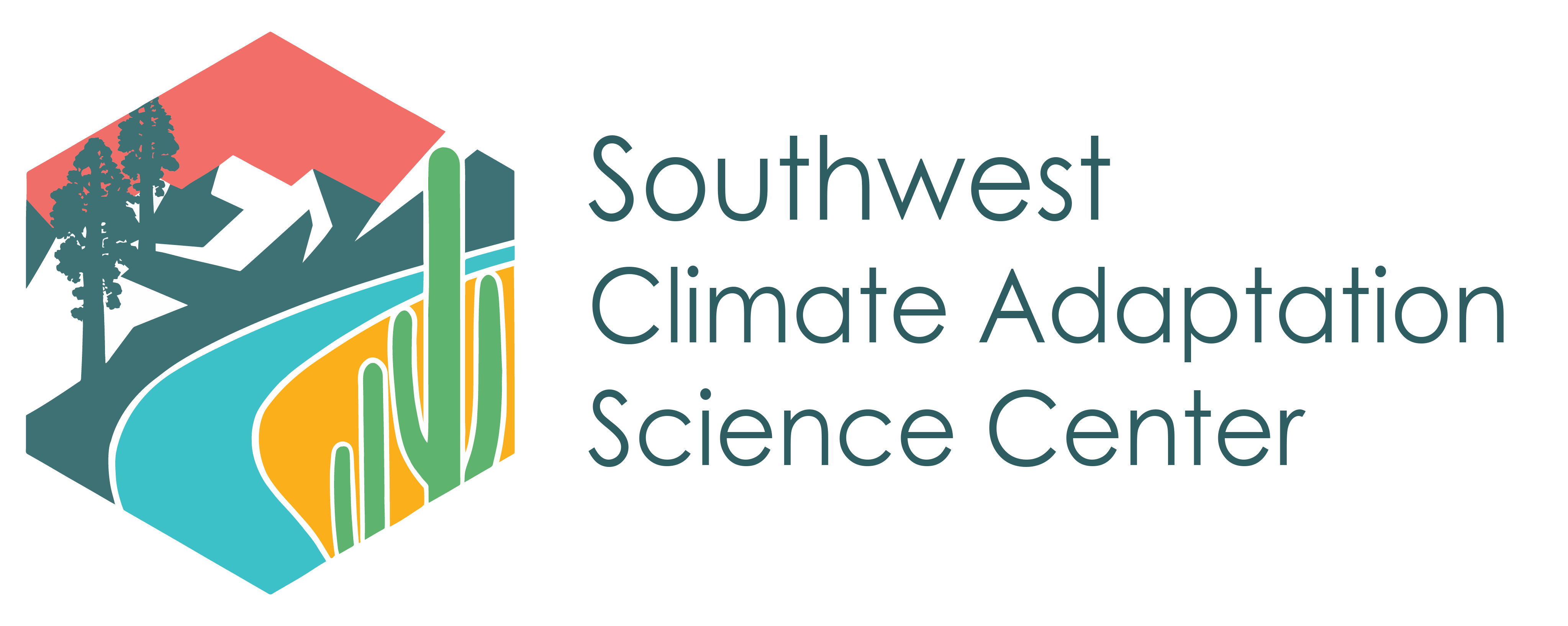How the SW CASC Fellowship Prepares Us for Real-World Challenges, Especially During a Pandemic

Lydia Jennings is a PhD candidate at the University of Arizona, in the Department of Environmental Science, with a minor in American Indian Policy. Her research interests are in soil health, environmental remediation, Indigenous science, mining policy, and environmental data ownership by tribal nations.
What happens when you bring together an atmospheric scientist, several hydrologists, stream and marsh ecologists, and a soil scientist into a fellowship about headwater ecosystems and downstream water resources? A lot of peer learning!
Upon being accepted and entering the SW CASC Natural Resources Workforce Development Fellowship in 2019, we had little idea how much it would prepare us for the world of 2020: the virtual meetings, distanced peer learning, integrating and listening to diverse perspectives. We navigated how to incorporate all of our interests and asked ourselves: How do we accomplish something in a short time period, being inclusive of all our skills, while ensuring everyone feels heard and validated? At the time, we didn’t anticipate how those same questions and themes might emerge in the very research we produced.
Though it took us a while (and a few drafts) to pin down our focus area, we eventually decided to investigate barriers to climate adaptation plans in the Middle Gila River of Arizona. This meant some of us became a bit more flexible outside of our normal scientific areas. We broke out into sub-teams: A technical team, which consisted of our amazing hydrologists and atmospheric scientists, who created models of future precipitation variations; and a survey team interested in understanding how communities are responding to changes in our climate. Personally, it was important for me to be in this sub-team, since a driving force in my own doctoral work has been thinking about how the data we generate impacts and benefits communities. As an Indigenous researcher, it is particularly important to me to ensure Indigenous voices are included to the best of our capacity in any science and policy conversation, especially in regards to water rights in Arizona.

Jennings in the field with tribal liaison, S. Arizona. Photo by Julie Neilson.
We went through a rigorous process of designing and refining our research questions, and received Institutional Review Board approval to ensure our human research participants in the survey are aware of the legal, scientific and social implications of our work. We consulted and collaborated with SW CASC social scientists and tribal liaisons to distill our questions. Yet, much to my personal sadness, conducting a survey during a pandemic, and working during a pandemic in general, hits communities differently. While it was important to me as an Indigenous scholar to ensure Indigenous voices were central to this project (with much support and equal consideration from my fellow cohort members), the reality is that COVID-19 has amplified long held structural inequalities in Indigenous communities that previously existed. For our group, that translated to the Gila River Indian Community (understandably so) dealing with a pandemic outbreak in their community, and not necessarily having the capacity to be part of our study in the timeline we desired.
I think this is an important theme and lesson for many of us. We may want to be as inclusive as possible in our work, but the reality is that some communities might have a single person doing 12 jobs for their Nation, while other communities or organizations have an available workforce to take the time to answer a 15-question survey. I reflected on this as I saw my own tribal nation, the Pascua Yaqui Tribe, confront COVID-19, and shut down many services, lose knowledge holders, and seek to provide for community members without food or work. It made me reflect that while the product our fellowship generated is important, and our future water in Arizona is vital, caring for community comes first, and the importance in planning to ensure that communities don’t face these same challenges in the changing climate crisis.
Interestingly, as we conducted a survey with stakeholders who were able to do so, some of the themes that we ourselves grappled with, were reflected in the responses from our community knowledge experts. Strained resources, challenges in priorities about climate adaptation goals, time constraints, intellectual and physical capacity, science translation, economic priorities and flexibility were all mentioned. As we reflected on this process amongst our SW CASC fellows, I think one of the biggest lessons I learned this last year is to be flexible, accountable and communicative. I also reflect that in many ways this fellowship did exactly what it set out for us to learn: how to work effectively in natural resource management with a range of priorities. Many of us are students in various stages in our program, but all of us have benefitted from the opportunity to learn from resource practitioners in the field, weave that together with our own professional skillset, and the abilities developed in this program. We will all eventually go out into the Natural Resource workforce with a braided set of knowledge to ensure our work addresses real-world needs informed by current experts and community members.
I feel hopeful in my experiences with this fellowship, and how much I learned about myself, and about other fields of study, in just a year. I think of the future fellows who will also create a family of nerds with their cohort and continue this process of braiding knowledge, and it makes me feel optimistic in the types of solution innovators being developed to address the many environmental challenges we will see in the future. I’m sad we won’t be able to share in person, with the next class, the lessons we’ve learned as the first SW CASC cohort, but I’m excited to see what kind of project they develop as they address another big natural resource issue in the west—fire. Hopefully in the future, we can weave our transdisciplinary skillsets together to continue to serve the West’s many natural resources and landscapes for future generations.

